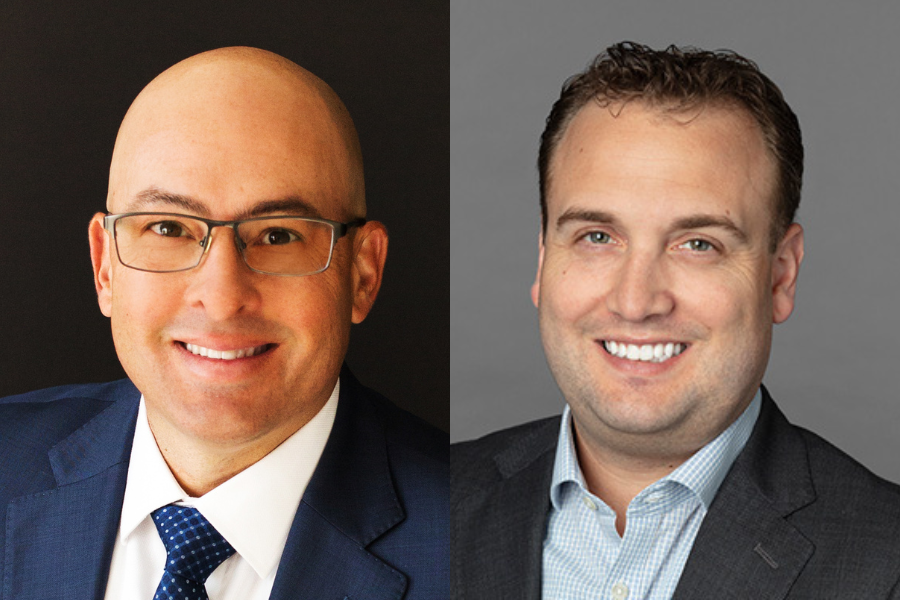

In today’s environment, effective succession planning is more crucial than ever. With five generations in the workforce and the "great wealth transfer" set to move an estimated $84 trillion over the next 20 years, demand for skilled financial advisors is soaring, with not enough next-gen advisors heeding the call.
So what seems to be the problem? Frank Anzalone, managing director and national head of sales and distribution at Lenox Advisors, believes it’s finding clients.
“You can't be an advisor if you have no clients,” he says. “The vast majority of new advisors would love to sit with a client to help them, so it's not the advice part. It's the sourcing clients. It's the sales aspect of it.”
Indeed, Anzalone attributes Lenox’s success of building $3.5 billion in AUM over the years to the firm’s involvement with participating in corporate enrollments, primarily for disability insurance. Lenox currently sees 30,000 leads a year come through their corporate enrollments.
“If we have 120 advisors and 30,000 leads a year, we don't have enough advisors for leads,” he admits. “One of the primary reasons our new advisors are finding Lenox so attractive is, after they go through the proper training early in their career, we can put them on enrollments where they're with high earners that they can build lifetime relationships with.’”
Matt Sendach, financial advisor and managing director at Lenox, attests to this experience. He explains one of the things that Lenox did early on is allow him to work with senior advisors, sometimes working with their legacy clients.
“That way, I was able to get into the mix right away and help out their clients. It's a good mentorship type of role,” he says.
Now, he’s passing the baton on to some of Lenox’s newest advisors.
“I'm doing the same thing with newer advisors that are just starting out by saying, ‘Do you want to work on some of my clients? Do you want to sit in on meetings with me? Do you want to call a couple of my clients that I haven't spoken to in a couple of years just to try to see if there's anything else that we can be helping them with?’”
Advisors are doing a poor job of bringing in new talent, Anzalone says, because it takes a lot to be successful in the business. As a result, firms are either forced to have to home grow their advisors or pluck talent from other firms they own.
“It's really rare to find organizations that blend the two approaches to have a platform that brings in new advisors and train them, provide mentorship, patience, investments and resources, and give them time to sink or swim,” he said.
One of the things that Lenox has focused on to bring in next-gen advisors is creating a program called Advisor Alliance, which ensures that every new advisor to the firm is paired with either a leader or a senior advisor.
“Anytime that we have a opportunity from a recruiting standpoint, whether it's at various conferences, college campuses, online, or the multiple interviews that we do every year, to make sure that we're only bringing in the best of the best. We're introducing them early on in the process to those potential mentors so they see that they're not coming into it [alone],” said Anzalone.
He added that mentorship plays a big role annually as the firm brings together their advisors that have been in the business under five years, along with their mentors to “break bread together and have that social element.”
“It's not just about the numbers. It's also about getting to know that advisor and their motivations and to find out their why. Everyone has their own motivational factor that drive them to be successful, and so I think that that's important,” he attests.
“If you want to bring in new advisors, not only do you have to be able to recruit them and train them and put together a really organized curriculum, you also have to help them find clients,” Anzalone added. “One of them is teaching them how to fish. The other is giving them fish and putting them on enrollments where they can learn a system. That's probably the number one, the system.”

Relationships are key to our business but advisors are often slow to engage in specific activities designed to foster them.

Whichever path you go down, act now while you're still in control.

Pro-bitcoin professionals, however, say the cryptocurrency has ushered in change.

“LPL has evolved significantly over the last decade and still wants to scale up,” says one industry executive.

Survey findings from the Nationwide Retirement Institute offers pearls of planning wisdom from 60- to 65-year-olds, as well as insights into concerns.
Streamline your outreach with Aidentified's AI-driven solutions
This season’s market volatility: Positioning for rate relief, income growth and the AI rebound
